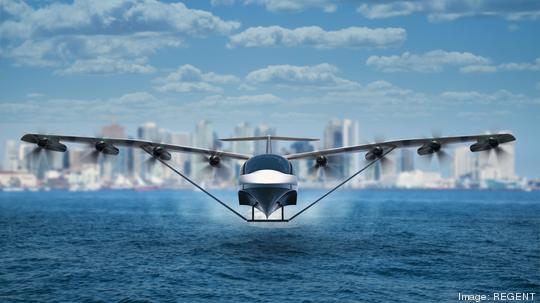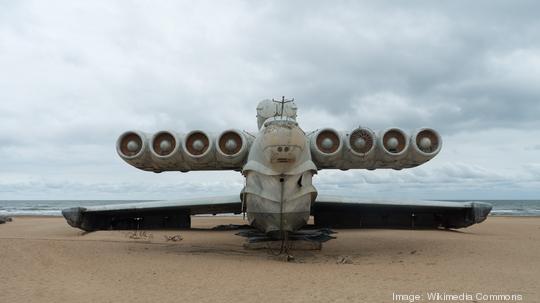
REGENT, a Boston startup, selected Tampa Bay as its first testing location for a boat-plane hybrid meant to connect nearby cities over the water.
Tampa and its nearby coastal cities are therefore an ideal incubator for a technology that's never been used for American cargo or passenger travel. But the technology itself isn't revolutionary.
The Soviet Union used the wing-in-ground effect from 1987 until the late 1990s during the Cold War. The monstrous vehicle — equal parts boat, plane and hovercraft — was equipped with nuclear warheads and measured 240 feet long, or just under the length of a 747.
The "Caspian Sea Monster" was once again in the spotlight last year when it was moved from a naval base to a planned military museum for tourists to see.

Lucky for Tampa, REGENT has no plans to put nuclear warheads on its seaglider. The aircraft will use the wing-in-ground-effect for less nefarious purposes: the transport of goods and people across coastal cities.
Seagliders are one of many eVTOLS (electric vertical take-off and landing) that will be introduced to the American public in the mid-2020s. Germany-based Lillium also plans to offer air taxis throughout Florida, including Tampa and St. Petersburg.
Tampa not only figures to be a testing ground for seagliders but one of the first beneficiaries of its future rollout.
“We are excited not just to host the testing of the technology demonstrator, but also for our city to be one of the first coastal routes serviced by seagliders in 2025 and beyond,” Tampa Mayor Jane Castor said in a statement.
The all-electric aircraft can travel about 180 miles per hour and will seat 12 passengers. The company expects to operate under Coast Guard jurisdiction.
"Over time, a collaborative approach between aviation and maritime authorities is key to deploy seagliders at scale," REGENT's website says.
The company is backed by Mark Cuban, Peter Thiel, Relativity Space founder Jordan Noone and Fitbit founder James Park, among others. It recently closed a $9 million seed round led by Founders Fund and Caffeinated Capital, according to its website.
If projections hold, REGENT's seagliders will be able to carry passengers and cargo 180 miles across the water.
The company plans to announce more details in a few months, said Billy Thalheimer, CEO of REGENT and former master's student at the Massachusetts Institute of Technology.




